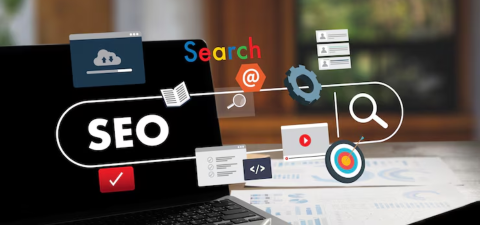
How to Use Free SEO Tools to Boost Your Website's Ranking
Getting your website to rank high in search engines is key today. A higher ranking means more people find your site. This leads to more traffic and more chances to succeed.
SEO is the way to get there. The good news is, you don't have to spend a lot. Many free tools can help boost your site's performance without costing you a dime.
This article will show you how to use free SEO tools. We'll cover the whole process step-by-step. You'll learn why each tool is essential and how to get the best results for free.
Understanding SEO and Its Importance
First, let's define SEO. SEO makes your website more attractive to search engines like Google. When someone searches for something related to your site, good SEO helps your site show up higher in the results.
SEO includes using the right keywords, creating valuable content, and improving site speed. Without SEO, your website might get lost online. But with good SEO, even small sites can compete with big ones.
Why Free SEO Tools Are a Game-Changer
Free SEO tools let anyone improve their website without spending a lot. These tools offer features like keyword research and site audits. They help you understand how your website works and how to improve it.
Using free SEO tools saves money. With the right strategy, you can get great results. These tools are easy to use, even for beginners. The key is to use them regularly and follow their advice.
Starting with Keyword Research
Keyword research is the basis of SEO. It's about finding the words people type into search engines. If your website includes these keywords, it's more likely to show up in results.
Tools like Google Keyword Planner and Ubersuggest can help find popular keywords. Just type in a topic related to your website, and they'll show you a list of keywords. You'll see data like search volume and competition level.
Pick keywords with good search volume but low competition. Then, use them naturally in your content. Please don't overdo it; focus on writing helpful content for your visitors.
Performing a Website Audit
A website audit is like a health check. It shows you what's working and what needs fixing. Free tools like Google Search Console and SEOptimer can scan your site and give you a detailed report.
These tools find problems like broken links and slow pages. Fixing these issues can significantly improve your SEO.
Regular audits are key. They keep your site in top shape and ensure you follow best practices. Make it a habit to audit your site every few weeks to catch and fix issues early.
Optimizing On-Page Elements
On-page SEO includes everything you do on your website to improve its visibility, including optimizing titles, headings, images, URLs, and content.
Tools like Yoast SEO and MozBar can help optimize each page. They guide you through improving your titles, meta descriptions, and more.
Make sure every page has a clear title with your primary keyword. Use headings to organize your content. Add relevant images with descriptive file names and alt tags. Keep your URLs short and include your primary keyword.
Good on-page SEO makes your website easier to read. It also helps you appear higher in search results.
Improving Content Quality
Search engines love high-quality content. This means content that is original, informative, and helpful to users. Free tools like Grammarly, Hemingway Editor, and QuillBot can help you improve your writing.
Make sure your content answers the questions your visitors may have. Use clear and straightforward language.
Avoid spelling and grammar mistakes. Break up long paragraphs to make the content easier to read. Content should also be updated regularly. Old information can hurt your SEO, so keep your content fresh and relevant. Add new sections, update outdated facts, and keep your readers informed.
Enhancing Page Speed
Page speed is an important ranking factor. If your site is slow, people may leave before it even loads. Google also ranks faster sites higher in the search results.
Free tools like Google PageSpeed Insights, GTmetrix, and WebPageTest can analyze your site speed and suggest improvements. These tools tell you what’s slowing down your site and how to fix it.
Compressing images, using browser caching, and minimizing code are common ways to speed up your site. Many content management systems also offer free plugins to help with these tasks.
Making Your Website Mobile-Friendly
More people are using their phones to browse the web. That’s why having a mobile-friendly website is key. If your site doesn’t work well on mobile devices, you could lose a lot of visitors.
Google’s Mobile-Friendly Test is a free tool that shows how your site performs on mobile. It highlights any issues and suggests how to fix them.
A responsive design is key. This means your website adjusts to fit different screen sizes. Use a mobile-friendly theme and check that buttons, images, and text are easy to see and use on smaller screens.
Building Backlinks the Smart Way
Backlinks are links from other websites to yours. They act as votes of confidence and help search engines see your site as trustworthy. The more quality backlinks you have, the higher your site can rank.
Free tools like Ahrefs Backlink Checker, Moz Link Explorer, and Ubersuggest can show you who links to your site and where your opportunities are.
To get backlinks, create high-quality content that others want to share. Contact bloggers, write guest posts, and participate in online communities. Always aim for links from reputable websites in your niche.
Monitoring Performance with Analytics
Tracking your website’s performance is essential to determining whether your SEO efforts are working. Google Analytics and Google Search Console are powerful free tools for this purpose.
Google Analytics shows the number of visitors to your site, where they come from, and what pages they visit. Google Search Console shows you which keywords bring in traffic, how your pages are indexed, and if there are any issues to fix.
Use these tools to understand your audience and adjust your SEO strategy based on real data. This helps you make better decisions and improve over time.
Using Local SEO Tools for Local Businesses
If you run a local business, local SEO is essential. It helps you show up in searches made by people in your area.
Google Business Profile is a free tool for managing your online presence in Google Search and Maps. Make sure your business information is accurate and complete.
Also, encourage happy customers to leave reviews. Positive reviews improve your local ranking and build trust with new customers.
Keeping Up with SEO Trends
SEO is constantly changing. Search engines update their algorithms regularly, and new strategies emerge. Staying updated helps you stay ahead of your competitors.
Follow reliable SEO blogs, forums, and YouTube channels. Use free tools like Google Alerts to get notified about new trends and changes in your industry.
Learning and adapting are part of the SEO journey. The more you know, the better you can use free tools to improve your site.
Combining Multiple Tools for Better Results
No single tool can do everything. The best way is to use several free tools together. Each one has its strengths, giving you a complete SEO picture.
For example, Google Keyword Planner can be used to find keywords.
Yoast SEO helps optimize your content. Google Analytics tracks your results. Together, they help you create, optimize, and analyze your SEO strategy.
Consistency is key. Use these tools regularly and keep making small improvements. Over time, your efforts will pay off with better rankings and more traffic.
Overcoming Common SEO Challenges
Many people face challenges with SEO, even with free tools. These might include limited data, slow progress, or technical difficulties. However, with patience and the right mindset, these challenges can be overcome.
Focus on learning and improving step by step. Use free resources to build your knowledge. Join SEO communities to ask questions and get support. Even with free tools, excellent results are possible if you stay committed.
Conclusion
Free SEO tools are valuable for anyone looking to improve their website’s ranking. They provide powerful features without the cost, making SEO accessible to everyone. From keyword research and on-page optimization to backlink building and performance tracking, free tools can help you every step of the way.
The key is to use these tools wisely and consistently. Understand what each tool offers, apply the insights to your site, and keep learning and adapting. With time and effort, you can boost your website’s visibility, attract more visitors, and achieve your online goals.
Remember, SEO is a journey, not a one-time task. Keep improving, stay updated, and let free tools be your guide to online success.
FAQs
Can free SEO tools improve my website ranking?
Yes, free SEO tools can provide valuable insights and help you make effective changes to your website. While they may have some limitations compared to paid tools, they are beneficial, even for beginners and small businesses.
What is the best free SEO tool for beginners?
Google Search Console and Google Analytics are incredible starting points. They are easy to use and provide a wealth of information about your website’s performance and visibility.
How often should I use SEO tools?
It’s best to use SEO tools regularly. Perform keyword research when creating new content, run audits every few weeks, and track performance continuously. Regular use helps you stay on top of any issues and improve steadily.
Do I need to know coding to use SEO tools?
No, most free SEO tools are designed to be user-friendly and do not require any coding knowledge. They provide clear instructions and tips that anyone can follow.
Is it okay to rely only on free tools?
Yes, even if you are starting or have a limited budget. Free tools offer great value and can help you achieve great results. Consider investing in paid tools for more advanced features as your website grows.


